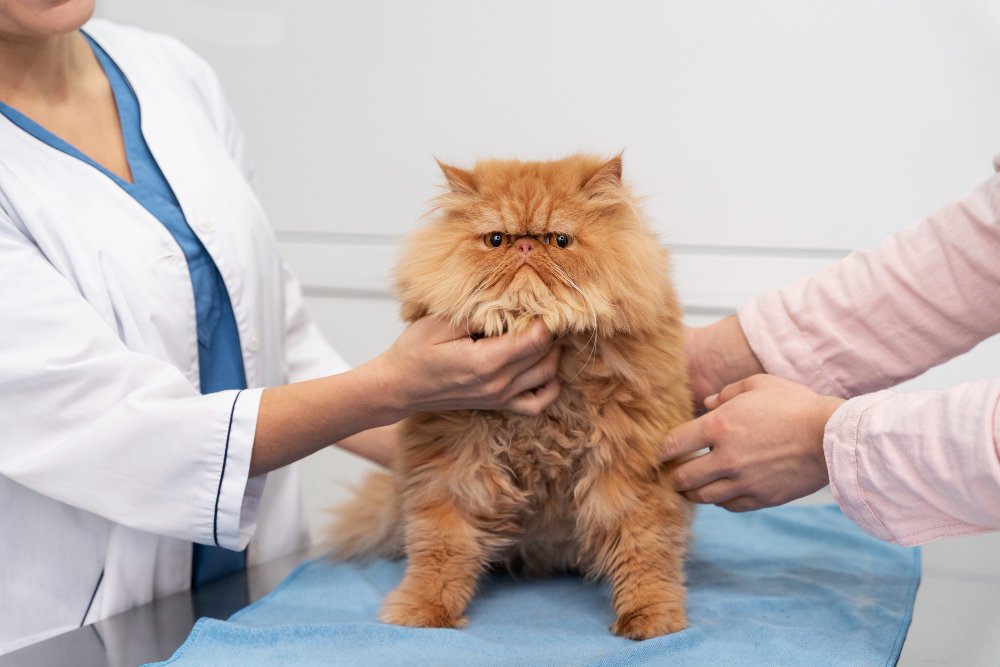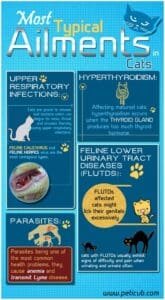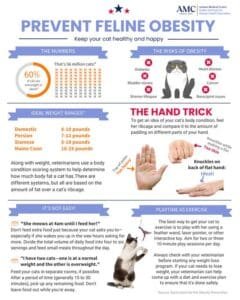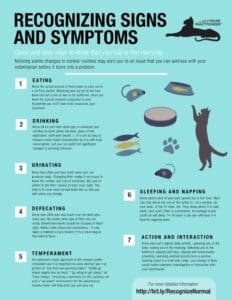Cats, with their endearing presence, play a significant role in our overall Feline Health. This piece delves into the intertwined relationship between feline mental health and our physical well-being. Discover how a cat’s companionship can elevate mood, diminish stress, and potentially decrease cardiovascular disease risks. For enthusiasts eager to grasp the holistic advantages of a cat’s presence, continue reading. Let’s unravel the profound bond between a cat’s psyche and our physical health.
Understanding Feline Mental Health
The importance of mental health in cats
As cat owners, we often prioritize our feline companions’ physical well-being, making sure they have enough food, water, and exercise. However, it is equally essential to consider their mental health. Just like humans, cats can suffer from mental distress and experience various mental health issues. Understanding the importance of mental health in cats is crucial for their overall well-being and happiness.
Common mental health issues in cats
Cats can experience a range of mental health issues, including anxiety, depression, and phobias. Anxiety in cats can manifest in behaviors such as excessive grooming, hiding, or aggression. Depression may be evident through loss of appetite, lethargy, or withdrawal from social interaction. Phobias, such as the fear of loud noises or certain objects, can lead to extreme stress and avoidance behavior. Recognizing these common mental health issues in cats is vital for early intervention and treatment.
Signs of mental distress in cats
Detecting signs of mental distress in cats is essential for understanding their mental health needs. Some common signs to watch out for include changes in appetite, weight loss or gain, increased vocalization, and destructive behavior. Cats may also exhibit excessive grooming, changes in sleep patterns, or withdrawal from social interaction. Recognizing these signs allows us to provide appropriate support and intervention to alleviate their mental distress.
Physical Well-being in Cats
The significance of physical well-being in cats
Physical well-being is fundamental to a cat’s overall health and happiness. Cats rely on their physical strength and agility for hunting, playing, and exploring their environment. Maintaining excellent physical health can help prevent a variety of health issues and ensure a longer and more active life for our feline friends.
Factors influencing physical health in cats
Several factors contribute to a cat’s physical health. A balanced and nutritious diet is crucial for providing the essential nutrients, vitamins, and minerals that cats need for their overall well-being. Regular exercise and physical activity help cats maintain a healthy weight, build muscle strength, and promote cardiovascular health. Proper grooming and dental care are also essential to prevent skin issues, infections, and dental problems.
Common physical health problems in cats
Cats can be susceptible to various physical health problems. Some of the most common issues include obesity, dental diseases, urinary tract infections, and arthritis. Obesity can lead to a range of health complications, including diabetes and joint problems. Dental diseases can cause pain, infections, and difficulty eating. Urinary tract infections can be painful and lead to urinary blockages if left untreated. Arthritis can result in discomfort, reduced mobility, and a decreased quality of life. Regular vet check-ups and awareness of these common physical health issues can help prevent and address them promptly.
The Interconnection between Mental Health and Physical Well-being
How mental health impacts physical well-being
The interconnection between mental health and physical well-being in cats is significant. Mental health issues, such as stress and anxiety, can have a direct impact on a cat’s physical health. Chronic stress can weaken their immune system, making them more susceptible to illnesses and infections. It can also contribute to digestive problems, skin issues, and respiratory difficulties. By addressing mental health concerns, we can promote better physical health in our feline companions.
The role of stress in feline health
Stress can have detrimental effects on a cat’s overall health. Cats can experience stress from various sources, including changes in their environment, conflicts with other pets, or lack of mental stimulation. Prolonged stress can lead to chronic health issues, weaken their immune system, and impact their overall well-being. Understanding and managing stress is essential for maintaining a cat’s physical health and mental well-being.
The link between mental stimulation and physical health
Providing mental stimulation is vital for a cat’s overall well-being, including their physical health. Engaging their minds with interactive toys, puzzles, and play sessions promotes mental and physical exercise. Mental stimulation not only keeps their minds sharp but also provides an outlet for natural behaviors and prevents boredom. By facilitating a mentally stimulating environment, we can enhance their physical health and overall happiness.
Promoting Feline Mental Health and Physical Well-being
Creating an enriching environment for cats
Creating an enriching environment is crucial for promoting feline mental health and physical well-being. Providing opportunities for exploration, such as vertical spaces and hiding spots, allows cats to engage in natural behaviors and reduce stress. Offering a variety of toys and scratching posts helps keep their minds stimulated and prevents destructive behavior. Additionally, ensuring a safe and secure environment gives cats a sense of security and promotes overall well-being.
Providing mental stimulation through play
Regular play sessions are essential for promoting feline mental health. Interactive toys, such as puzzle feeders or toys that mimic hunting behaviors, engage their natural instincts and stimulate their minds. Playing with cats not only provides mental stimulation but also strengthens the bond between cat and owner. Dedicate time each day for interactive play sessions to keep your cat mentally and physically active.
Establishing a routine of exercise and physical activity
Regular exercise and physical activity are vital for maintaining a cat’s physical well-being. Encouraging them to engage in activities such as chasing a feather wand, playing with balls, or using a laser pointer can help them burn off energy and maintain a healthy weight. Providing opportunities for climbing, scratching, and jumping also promotes muscle strength and agility. Incorporate exercise into their daily routine to support their physical health.
Ensuring a balanced and nutritious diet
A balanced and nutritious diet is crucial for promoting overall feline health, including their mental well-being. Feeding cats high-quality, balanced cat food that meets their specific nutritional needs is essential for their physical health. Consult with a veterinarian to determine the appropriate diet for your cat’s age, weight, and any specific dietary requirements. A well-nourished cat is more likely to have good mental health and overall well-being.
The importance of regular veterinary check-ups
Regular veterinary check-ups play a vital role in maintaining feline mental health and physical well-being. Routine examinations allow veterinarians to assess your cat’s overall health, identify any potential concerns, and provide necessary vaccinations and preventative treatments. Regular dental check-ups are also essential for preventing dental diseases, which can impact a cat’s overall health. By prioritizing routine vet visits, we can ensure early detection and intervention for any issues that may arise.
The Benefits of a Healthy Mind-Body Connection for Cats
Reduced risk of obesity and weight-related issues
When cats are mentally stimulated and emotionally satisfied, they are less likely to overeat or engage in unhealthy eating behaviors. A healthy mind-body connection reduces the risk of obesity and weight-related issues, promoting better overall health and longevity.
Improved immune system and overall health
A healthy mind-body connection positively influences a cat’s immune system. Reduced stress levels and mental distress can strengthen their immune response, making them less susceptible to illnesses and infections. By promoting mental well-being, we can enhance their overall health and well-being.
Enhanced cognitive abilities and problem-solving skills
Providing mental stimulation and maintaining a healthy mind-body connection can enhance a cat’s cognitive abilities and problem-solving skills. Engaging their minds through puzzles, interactive toys, and training exercises challenges their intelligence and keeps their minds sharp and agile.
Reduced behavioral problems and aggression
A healthy mind-body connection significantly reduces the risk of behavioral problems and aggression in cats. Mental stimulation and emotional well-being contribute to a balanced and contented state, minimizing the likelihood of destructive behaviors, scratching furniture, or aggression towards humans or other animals.
The Role of Human Interaction in Feline Mental Health and Physical Well-being
The impact of positive human interaction on cats
Positive human interaction plays a crucial role in feline mental health and physical well-being. Cats are social animals and thrive on human companionship and affection. Regular positive interactions, such as petting, talking, playing, and grooming, foster a sense of security, happiness, and emotional well-being in cats.
The influence of human companionship on feline stress levels
Human companionship can significantly impact a cat’s stress levels. Spending quality time with our feline friends helps alleviate stress and anxiety, as they feel loved, safe, and secure in our presence. Human interaction can provide a sense of comfort and emotional support, reducing stress-related symptoms in cats.
The role of bonding and attachment in feline well-being
Building a strong bond with our cats is essential for their mental health and physical well-being. Cats form deep attachments to their human companions, and these strong bonds contribute to their overall well-being. The sense of security and love they feel from their human family positively affects their mental and emotional health.
Recognizing and Addressing Mental Health Problems in Cats
Identifying signs of mental health issues
Recognizing signs of mental health issues in cats is crucial for their well-being. Changes in behavior, appetite, sleep patterns, or social interaction can indicate underlying mental distress. Excessive grooming, aggression, or withdrawal are also signs that something may be wrong. Pay attention to any unusual or concerning behavior and seek professional help if needed.
Seeking professional help and diagnosis
If you suspect your cat is experiencing mental health issues, it is essential to seek professional help from a veterinarian or a feline behaviorist. They can evaluate your cat’s behavior, conduct necessary tests, and provide an accurate diagnosis. Professional guidance is crucial for developing an appropriate treatment plan to address your cat’s mental health concerns.
Behavioral and environmental interventions for mental health improvement
Addressing mental health issues in cats often involves a combination of behavioral and environmental interventions. Behavior modification techniques, such as counter-conditioning or desensitization, can help cats overcome anxieties or phobias. Creating a calm and enriching environment, providing plenty of hiding spots, and ensuring a consistent routine can also contribute to their mental well-being. Consult with professionals about the most suitable interventions for your cat’s specific needs.
The Effect of Aging on Feline Mental Health and Physical Well-being
Common mental and physical health challenges in senior cats
As cats age, they may face specific mental and physical health challenges. Cognitive decline, arthritis, reduced mobility, or sensory impairments can affect their overall well-being. Cats may experience confusion, disorientation, or changes in behavior due to age-related mental health issues. Arthritis and mobility issues can lead to decreased physical activity and muscle strength. Awareness of these challenges can help us provide appropriate care for our aging feline companions.
Adapting the environment to support cognitive function
Adapting the environment becomes crucial for supporting the cognitive function of senior cats. Providing familiar and easily accessible resources, such as litter boxes and food/water bowls, can help them navigate their surroundings. Offering interactive toys and puzzles designed for senior cats can keep their minds engaged and slow down cognitive decline. Ensuring a safe and comfortable environment is essential for their mental and physical well-being.
Providing specialized care for aging felines
Senior cats may require specialized care to support their mental health and physical well-being. Regular vet check-ups become even more critical to monitor any age-related health issues and provide appropriate treatment. Specialized diets, supplements, and medication can also help manage common age-related conditions. Offering additional support, love, and companionship to our aging feline friends is essential for their overall happiness and well-being.
The Impact of Stress on Feline Mental Health and Physical Well-being
Understanding different sources of stress in cats
Cats can experience stress from various sources, and it can have a significant impact on their mental health and physical well-being. Changes in their environment, such as moving to a new home or the addition of new pets, can cause stress. Lack of mental stimulation, isolation, or conflicts with other animals can also contribute to stress in cats. Identifying the sources of stress is crucial for addressing and managing its impact.
Recognizing stress-related symptoms
Recognizing stress-related symptoms is essential for understanding a cat’s mental health needs. Excessive grooming, changes in appetite or weight, avoidance behavior, or increased vocalization are common signs of stress in cats. Other indicators may include hiding, aggression, or inappropriate elimination. By recognizing these symptoms, we can make necessary changes to reduce their stress and promote better mental and physical well-being.
Stress reduction techniques for better overall health
Implementing stress reduction techniques can significantly benefit a cat’s overall health and well-being. Providing a safe, calm, and enriched environment helps reduce stress levels. Creating designated safe spaces, offering vertical spaces for climbing, and ensuring consistent routines can alleviate anxiety. Additionally, incorporating regular play sessions, interactive toys, and gentle grooming sessions can contribute to stress reduction in cats. Consult with professionals about additional stress reduction techniques suitable for your cat’s needs.
Conclusion
Understanding the connection between feline mental health and physical well-being is essential in providing holistic care for our beloved cats. By recognizing the importance of mental health, identifying signs of distress, and addressing both mental and physical needs, we can promote a healthy mind-body connection. By creating enriching environments, providing mental stimulation, and offering positive human interaction, we can ensure our cats lead happy and fulfilling lives. Regular veterinary check-ups, attention to aging-related challenges, and stress reduction techniques further contribute to their overall well-being. Let us prioritize the mental health and physical well-being of our feline companions to help them thrive and enjoy their lives to the fullest.




